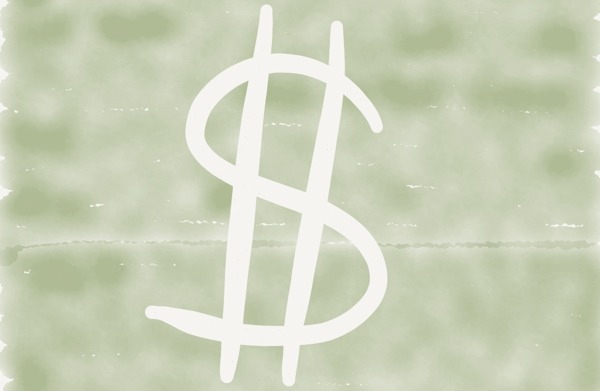The Billionaire Formula

“A million dollars isn’t cool. You know what’s cool? A billion dollars."
The Social Network by Aaron Sorkin
Let’s assume you want to become a billionaire. Let’s also assume that you choose to ignore the evidence that having a billion dollars won’t make you happier or more satisfied with your life. Becoming a billionaire is your only goal. How would you go about doing it?
Quit Your Day Job
First, you can’t expect to become a billionaire if you hold a salaried job, even a high-paying one. Median pay for the CEO of a public company in 2011 totaled $9.6 million dollars, which includes cash, stock, and bonuses. You’d become a bilionaire in 104 years; probably less, since median CEO pay keeps increasing. Still, median CEO tenure is 4.9 to 6.5 years, so even the top job probably won’t make you a billionaire.
If you want to become a billionaire, you have to be at least a partial owner of a very large company. Ideally, you should start that company, and hold on to a large chunk of shares as it grows.
The Billionaire Formula
Okay, you’re now the founder of a growing company. How much money does the business need to bring in to make you a billionaire?
Here’s the basic formula for becoming a billionaire:
(Typical Customer Lifetime Revenue - Typical Lifetime Cost of Customer Acquistion - Typical Lifetime Cost of Customer Value Delivery - Amortized Overhead per Customer) * Number Of Customers Served * ( 1 - % Average Corporate Tax Rate) % Ownership of the Business
Here's what these terms mean:
Typical Customer Lifetime Value is the amount of revenue you collect from every customer over the entire lifetime of their association with your business.
Typical Lifetime Cost of Customer Acquisition is the amount you spend (on average) to bring in a new customer.
Typical Lifetime Cost of Customer Value Delivery is the amount you spend (on average) to deliver the value you create to a paying customer.
Amortized Overhead per Customer is the amount you spend on salaried employees, office space, utilities, insurance, etc. divided by the number of customers you serve.
Number of Customers Served is self-explanatory.
% Ownership of the Business is the number of shares of the business you own divided by the total number of shares that exist. This ownership percentage entitles you to that percent of the company’s profits, but the mechanism by which you collect those profits in practice may vary.
Astute readers will notice that (Revenue - Costs - Overhead - Tax) is the definition of Net Profit. That means we can simplify the formula to this:
Typical Lifetime Net Profit Per Customer * Number Of Customers Served * % Ownership of the Business
Three Major Variables
Broken down this way, it’s pretty easy to see how billionaires are made. If you have a business with a very high typical lifetime net profit per customer, you serve a lot of customers, and you own most of the business, you’ll make a lot of money. Simple as that.
You can also give on one or more criteria if you make up for it in others. For example, if you own 100% of a toy company that sells novelties for $1 typical net profit per customer, you can still become a billionaire if you sell to 1 billion people. Likewise, large reinsurance companies may have less than 100 customers, but when each customer’s lifetime net profit is in the hundreds of millions of dollars, the math still works.
The real key is percentage ownership. If you own a large stake in a business that’s serving millions of people extremely profitably on a consistent basis, you’re likely to become a billionaire. In practice, there are relatively few companies that reach this size, and those companies each have only a few owners who have large enough stakes to reach the billion-dollar mark, so there are very few billionaires.
The Public Market Wrinkle
The public stock market adds an interesting twist to the billionaire formula. If the market values a company as if it had a high Typical Lifetime Net Profit Per Customer or as if it were already serving millions of happy customers, an owner of that company may have a net worth of over a billion dollars… at least on paper. The actual numbers may not matter so much if investors believe the company has promise in the not-so-distant future. If the market begins valuing the company differently, however, that personal net worth line can change overnight.
A good example of this phemomenon is Mark Zuckerburg, who owns 28.2% of Facebook. When the company went public, investors valued the company as if Typical Lifetime Net Profit Per Customer was very high, and millions of advertisers were happy customers. (Remember, Facebook users are not Facebook’s customers - they’re Facebook’s product. ) When Facebook went public, Zuckerburg was suddenly worth $19.1 billion dollars.
41 days after going public, however, prices for shares of Facebook plunged, and Zuckerburg was suddenly $7.2 billion dollars poorer. All that happened was a shift in the expectations of the market.
Major Lesson: Own a Large Chunk of a Profitable Business
Forbes currently lists 1153 billionaires in the world today, out of a world population approaching 7 billion people. Every single one of them is a significant owner of an extremely profitable business that serves many (or large) customers.
Want to become a billionaire? There’s your formula.
Read more essays by Josh Kaufman »